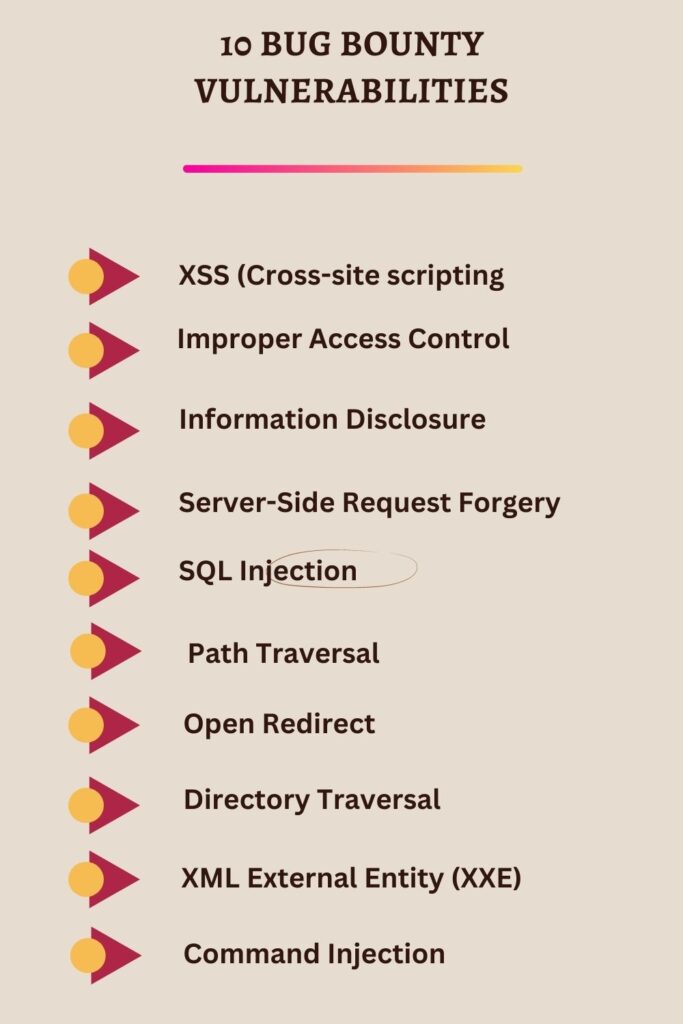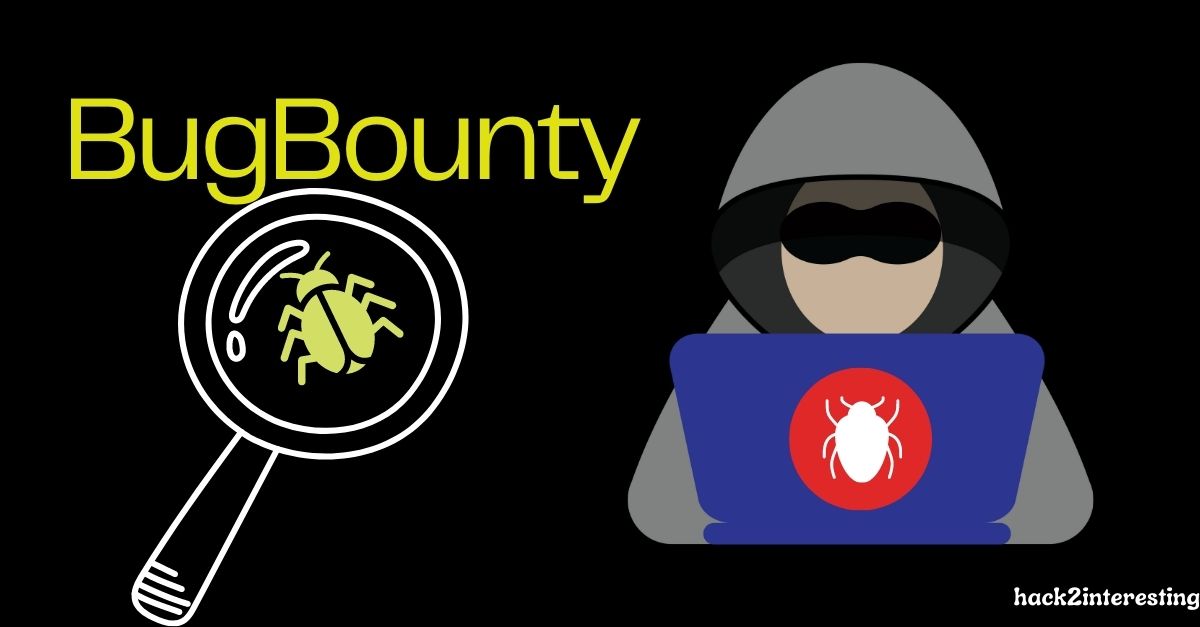Bug Bounty, also known as Vulnerability Rewards Program (VRP), is a proactive cybersecurity initiative that incentivizes ethical hackers and security researchers to identify and report software vulnerabilities or bugs within an organization’s digital assets. In this unique crowdsourcing approach, organizations invite external individuals to scrutinize their websites, applications, systems, or networks, seeking out potential security weaknesses that might otherwise go undetected.
Participants in a Bug Bounty program, often referred to as “bounty hunters,” employ their technical expertise, creativity, and ethical hacking skills to uncover a diverse range of vulnerabilities. These vulnerabilities can range from coding errors, configuration flaws, to complex security loopholes that could be exploited by malicious hackers to compromise data or disrupt services.
Upon discovering a valid vulnerability, the bounty hunter submits a detailed report to the organization’s security team, outlining the nature and potential impact of the flaw, and often accompanied by a proof-of-concept (PoC). The organization then verifies the reported vulnerability and rewards the researcher with a bounty, typically in the form of monetary compensation, commensurate with the severity and impact of the identified bug.
Understanding Bug Bounty Programs
Bug Bounty programs offer rewards, typically monetary compensation, to individuals who successfully identify and report software vulnerabilities to the organization running the program. These vulnerabilities can range from simple coding errors to complex security flaws that may otherwise go unnoticed. The overarching goal of Bug Bounty programs is to incentivize researchers to collaborate with organizations, facilitating the rapid detection and resolution of potential security risks.
Here is a list of million-dollar bug bounties awarded till date:
- $10 million: Rewarded to “satya0x” for discovering a vulnerability in the Wormhole crypto platform.
- $6 million: Rewarded to “pwning.eth” for discovering a critical vulnerability in the Aurora crypto service.
- $3 million: Rewarded to “James Prestwich” for discovering a vulnerability in the bZx DeFi platform.
- $2 million: Rewarded to “h4x0r_dz4n” for discovering a vulnerability in the BadgerDAO DeFi platform.
- $1 million: Rewarded to “b1tcc0r” for discovering a vulnerability in the Poly Network DeFi platform.
- $1 million: Rewarded to “peckshield” for discovering a vulnerability in the PancakeBunny DeFi platform.
- $1 million: Rewarded to “samczsun” for discovering a vulnerability in the Ronin Network DeFi platform.
- $800,000: Rewarded to “c0bra_sec” for discovering a vulnerability in the Harmony Horizon bridge.
- $500,000: Rewarded to “gzobqq” for discovering an exploit chain of five bugs in Android.
- $500,000: Rewarded to “pwndbg” for discovering a vulnerability in the OpenZeppelin ERC-721 contract library.
- $300,000: Rewarded to “orange” for discovering a vulnerability in the Binance Smart Chain (BSC).
- $200,000: Rewarded to “b1tcc0r” for discovering a vulnerability in the SushiSwap DeFi platform.
- $200,000: Rewarded to “pwndbg” for discovering a vulnerability in the Chainlink oracle system.
- $150,000: Rewarded to “James Forshaw” for discovering a vulnerability in the Windows kernel.
- $150,000: Rewarded to ” James Forshaw ” for discovering a vulnerability in the Twitter API.
- $100,000: Rewarded to “h4x0r_dz4n” for discovering a vulnerability in the Curve Finance DeFi platform.
- $100,000: Rewarded to “pwndbg” for discovering a vulnerability in the imToken mobile wallet.
This is just a partial list of the many million-dollar bug bounties that have been awarded. Bug bounty programs are becoming increasingly popular, and as a result, we can expect to see even more million-dollar bounties awarded in the future.
Here are the top 10 most awarded bug bounty vulnerabilities, according to HackerOne:
- XSS (Cross-site scripting)
- Improper Access Control
- Information Disclosure
- Server-Side Request Forgery (SSRF)
- SQL Injection
- Path Traversal
- Open Redirect
- Directory Traversal
- XML External Entity (XXE)
- Command Injection

These vulnerabilities are often rewarded with high bounties because they can be exploited to gain unauthorized access to systems or sensitive data. They are also relatively common, so there are many opportunities to find them.
If you are interested in participating in bug bounty programs, it is important to learn about these vulnerabilities and how to find them. There are many resources available online, including tutorials, blog posts, and security conferences.
